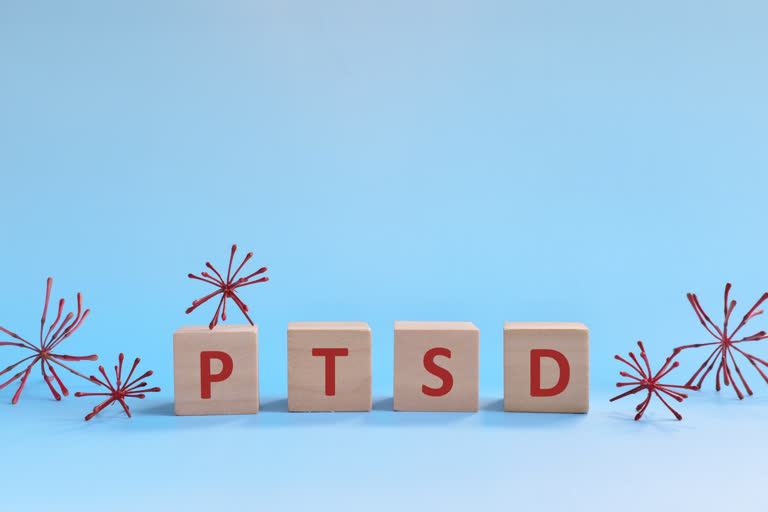You must have come across a lot of reports and researches showing how the COVID-19 pandemic has tremendously affected people mentally all over the world. There has been a huge rise in the cases of people suffering from stress, depression, anxiety, and a lot more. Apparently, there has also been an increase in the number of people having PTSD or Post-Traumatic Stress Disorder, especially in those who already recovered from COVID-19. ETV Bharat Sukhibhava team spoke to Dr. Veena Krishnan, consultant Psychiatrist Dehradun, to understand more about the same.
What Is PTSD?
“PTSD is basically a psychological trauma that one goes through due to a life event. It is very disturbing for the person and it can be due to experiencing or witnessing events such as a physical injury, sexual violence, sudden death or a loved one, serious threat to life, etc.” says Dr. Veena Krishnan. The events are life-changing and a person’s brain may react to them in a different way. Some of the symptoms as our expert explains are:
- A person becomes irritable and has trouble concentrating.
- He/she becomes distanced from people or doesn’t socialize
- Complete avoidance of talking about the event or situation
- Loss of sleep, hunger, and thirst.
- Feeling of guilt, shame and anxiety
- Having a negative state of mind and being upset about small things
- Trouble sleeping
Major symptoms are having recurrent intrusive memories of the trauma, nightmares, and flashbacks of the event disturbing the mind, avoidance of the reminders like people/places associated with the traumatic event, hypervigilance, etc.
How Is COVID-19 Associated With PTSD?
Dr. Krishnan explains that the COVID-19 pandemic carries with itself a lot of uncertainty. And whenever there is uncertainty, we instantly start feeling anxious and develop fear. In response to that fear, there is an increase in heart rate, pulse, blood pressure, sweating of the palm, etc. Our autonomic nervous system will respond to it. During the pandemic, when we saw so many people dying of the disease, going into quarantine and our loved ones suffering from it, our brain was alarmed.
People started showing PTSD-like symptoms when they experienced or witnessed the death or near-death episodes in their family due to the disease, the fear of contracting or becoming a carrier of the disease and re-contracting the disease, fear of hospitalization, extreme exposure to the virus, all contributed to the pandemic being a traumatic event in many people's lives. Most of the cases seen are post COVID-19 recovery in people.
Treating PTSD
Acknowledging the symptoms and seeking professional help is extremely mandatory in the case of PTSD, says Dr. Krishnan. The treatment of PTSD may vary from one patient to another. Some of the ways of treating this condition include deep relaxation therapy, single or group psychotherapy, exposure therapy, talk therapy and cognitive restructuring therapy. Practicing mindfulness and meditation is also helpful.
It is necessary for the family and friends of the person suffering from this disorder to treat them with utter patience and calmness and regularly conversate with them. Try to make a pleasant environment around them and always talk about positive things. This will help them feel better. Therefore, timely treatment of this disorder can prevent further worsening of the condition. Seek professional help if you experience any aforementioned symptoms.
